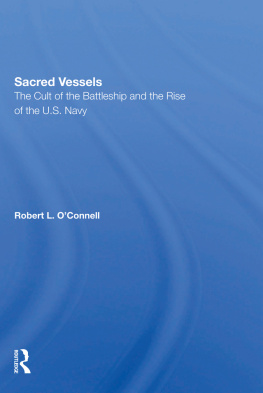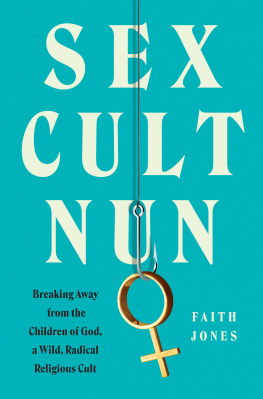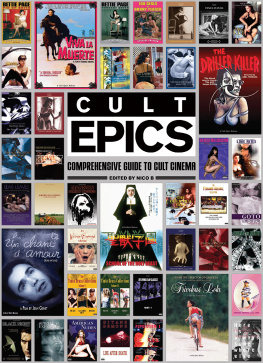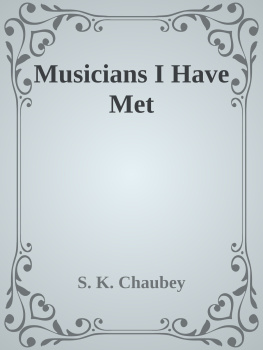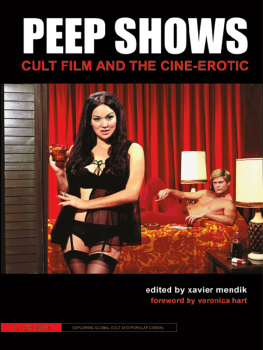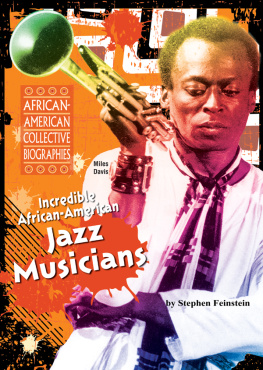Robert Dimery - Cult Musicians
Here you can read online Robert Dimery - Cult Musicians full text of the book (entire story) in english for free. Download pdf and epub, get meaning, cover and reviews about this ebook. year: 2020, publisher: White Lion Publishing, genre: Non-fiction. Description of the work, (preface) as well as reviews are available. Best literature library LitArk.com created for fans of good reading and offers a wide selection of genres:
Romance novel
Science fiction
Adventure
Detective
Science
History
Home and family
Prose
Art
Politics
Computer
Non-fiction
Religion
Business
Children
Humor
Choose a favorite category and find really read worthwhile books. Enjoy immersion in the world of imagination, feel the emotions of the characters or learn something new for yourself, make an fascinating discovery.

- Book:Cult Musicians
- Author:
- Publisher:White Lion Publishing
- Genre:
- Year:2020
- Rating:4 / 5
- Favourites:Add to favourites
- Your mark:
- 80
- 1
- 2
- 3
- 4
- 5
Cult Musicians: summary, description and annotation
We offer to read an annotation, description, summary or preface (depends on what the author of the book "Cult Musicians" wrote himself). If you haven't found the necessary information about the book — write in the comments, we will try to find it.
Cult Musicians — read online for free the complete book (whole text) full work
Below is the text of the book, divided by pages. System saving the place of the last page read, allows you to conveniently read the book "Cult Musicians" online for free, without having to search again every time where you left off. Put a bookmark, and you can go to the page where you finished reading at any time.
Font size:
Interval:
Bookmark:


50 Progressive Performers You Need to Know
ROBERT DIMERY


So what exactly is a cult musician?
As youll discover while reading this book, that short word covers a broad spectrum of character, talent and legacy. A number of the artists featured in these pages had tragically short careers (Lili Boulanger, Syd Barrett), while the reputation of others rests on a spark of brilliance that swiftly expired, or on a slender body of work sometimes as slim as just one album that still retains its ability to inspire (J Dilla, Arthur Lee, Nick Drake, The Slits).
Some of our subjects enjoyed major commercial success at a very early stage in their career. Alex Chilton with The Box Tops, Scott Walker with The Walker Brothers and Brian Eno with Roxy Music all had hit singles and in Walkers case prompted hysterical levels of adoration from fans. But they turned their back on all of that to seek out new, strikingly different landscapes that must have appeared alien to their original followers. What would the teenager who bought The Walkers 1966 UK no.1 The Sun Aint Gonna Shine Any More make of Scotts 1978 track The Electrician, set in a Latin American torture cell?
Bobbie Gentry, Captain Beefheart and Delia Derbyshire had long careers without ever fully achieving the recognition or success that their gifts warranted. Plenty of these artists were so richly endowed with talent and imagination that they were simply too prolific, changed tack too many times, or ventured into territories too strange and unfamiliar to win a steady audience and mainstream acceptance (Kool Keith, Brigitte Fontaine and Mark Hollis). And of course, relentless productivity can all too easily result in quality control going out of the window
Others had to struggle just to escape from the shadow of a partners profile. And, yes, they were all women. Yoko Ono was (wrongly) vilified for her part in allegedly breaking up the Greatest Band in the World never mind that she was already an established artist by the time she met John Lennon. And in the 1970s, her music regularly explored far riskier territories than that of her husband. Marianne Faithfull went the long and hard way round to shuck off her image as a pure-voiced 1960s pin-up and Mick Jaggers girlfriend, before establishing herself as a worldly wise chanteuse of depth and intelligence.
During the 1990s, I went to a talk given by the author John Fowles. Asked about any advice for aspiring writers in the audience, he replied that the first thing you needed to do was kill your parents. Or, to cut to the heart of his metaphor: dont let anyone get between you and your art always write for yourself, never for others. And if were looking for threads that might connect the tapestry of singular talent in Cult Musicians, then absolute devotion to your music whether or not anyone is listening is a prime one.

Mark E Smith highlighted the surreal in the everyday, with lyrics simultaneously arresting and dumbfounding. And no one least of all the other members of The Fall (of which there were around sixty-six over the years, give or take a guitarist or two) was allowed to get in the way. For decades, Moondog played his own compositions, on instruments hed designed himself, on the streets of New York, entirely on his own terms; he let the world come to him. And Sun Ras orbit was also famously irregular, but it led him to redefine the course of jazz (and rock), and like Moondog, he was under no illusions as to the way he was generally perceived or the sacrifices he would have to make to fulfil his aims.
Frank Zappa delighted in scatological or sexually provocative lyrics, but he was also a hugely prolific and fiercely smart composer, working in the fields of modern classical music, rock, jazz and all points in between, and respected by the Czech president Vclav Havel if not the US government for his uncompromising art. It would be all too easy to write off reggae producer Lee Scratch Perry as a cartoon eccentric, were it not for his stream of game-changing recordings during his 1970s imperial phase. And Serge Gainsbourg may have offended large sections of French society with his uncensored comments and increasingly out-of-bounds behaviour, but his clear-eyed honesty about human foibles and frailties, coupled with his exceptional songcraft, transcended the tabloid myth.
It follows that most, if not all of the artists in this book are supremely individualistic iconoclastic, even. You might say that each of them has evolved a genre of their own, and in the case of the most vibrantly innovative artists, a whole string of genres.
For many of our subjects, conventional Western rock music just doesnt cut it when it comes to mapping out human experience. Sun Ras 1974 release Space Is the Place (which accompanied the Afrofuturist movie of the same name) set the controls for Way Out There and artists as diverse as Delia Derbyshire, Eno and Syd Barrett were all on board. In common with the great John Cage a pivotal influence on Eno and Ryuichi Sakamoto many of the artists in these pages asked what music was anyway, and came up with ways to redefine it. Likewise, the search for alternative philosophies and ways of being saw Cage (again) embrace Buddhism, while its concepts of fluidity and lack of resolution existence as flow, in other words certainly impacted on the work of cello-playing avant-garde disco experimentalist Arthur Russell.
Sometimes these non-conformists appeared uniquely fully formed from the off, marking a clean break from the past. But all of them (even Ra, or Beefheart for that matter) started somewhere, building their fantastic sound palaces on solid foundations jazz and blues, in the case of those two maverick visionaries. Everything comes from something, however roundabout the route. The repetition and floating quality of many of the works by late-19th-century composer Erik Satie, and his concept of furniture music (using sounds that influence the mood in a room without drawing attention to themselves), re-emerges in Cages playful, outside-the-box innovations. (Its not a question of Saties relevance, Cage insisted. Hes indispensable.)
Satie and Cage, in turn, held great sway over Eno in his development of ambient music in the 1970s. And it was Cages emphasis on rejecting ingrown habits (which might include a tendency to repeat hackneyed chord sequences, playing styles, lyrics, attitudes or prejudices) that led to Enos Oblique Strategies cards. Developed with Peter Schmidt, each one bears an apparently random instruction intended to encourage an individual to try something new.
Sadly, another recurring element among our chosen fifty is fragility a skin too few, to use a phrase often applied to Nick Drake but which also holds for Sandy Denny, who had a bewildering lack of belief in her own talent. Syd Barrett is regularly dismissed as an acid casualty, but that easy term ignores his mental instability and the pressures he was under as the prime songwriter and charismatic focus of a young band hungry for success.
Font size:
Interval:
Bookmark:
Similar books «Cult Musicians»
Look at similar books to Cult Musicians. We have selected literature similar in name and meaning in the hope of providing readers with more options to find new, interesting, not yet read works.
Discussion, reviews of the book Cult Musicians and just readers' own opinions. Leave your comments, write what you think about the work, its meaning or the main characters. Specify what exactly you liked and what you didn't like, and why you think so.



